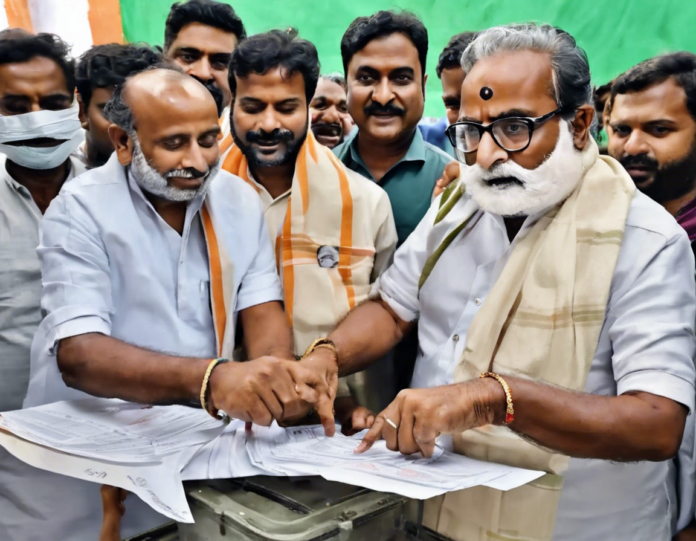The West Bengal Panchayat Elections of 2023 were highly anticipated, given the state’s history of fierce political battles. The results of these elections have far-reaching implications for the state’s governance and political landscape. In this article, we will delve into the key aspects of the 2023 West Bengal Panchayat Election results, analyzing the outcome, major players, impact, and what it means for the state’s future.
Election Overview
The West Bengal Panchayat Elections were held in [date] with voters turning up in large numbers to cast their ballots. The election saw intense competition among various political parties, with each vying for dominance at the grassroots level of governance.
Key Players
The major players in the West Bengal Panchayat Elections included the ruling party [Party Name], the main opposition party [Party Name], and several regional parties and independent candidates. These elections were crucial for both the ruling party to maintain its stronghold and the opposition to make significant inroads.
Outcome
The election results revealed a clear mandate for one party over the others. The ruling party [Party Name] emerged victorious, securing a majority of seats across various Panchayat levels. This victory underscores the party’s continued popularity among the electorate and reaffirms its position as the dominant political force in West Bengal.
Impact
The outcome of the 2023 West Bengal Panchayat Elections is expected to have a profound impact on the state’s governance and political dynamics. With the ruling party consolidating its power at the grassroots level, it is likely to have a more pronounced influence on local administration and decision-making processes. This could lead to a more streamlined implementation of government policies and programs, benefiting the citizens of West Bengal.
Future Implications
Looking ahead, the results of the 2023 West Bengal Panchayat Elections are likely to shape the state’s political landscape for the foreseeable future. The ruling party’s dominance at the Panchayat level could translate into electoral dividends in the upcoming state and national elections. On the other hand, the opposition parties will need to strategize and regroup to pose a more significant challenge in the future.
Analysis and Trends
Analyzing the election results, certain trends and patterns emerge that shed light on the electorate’s preferences and priorities. Factors such as development initiatives, governance performance, and local issues likely played a crucial role in influencing voters’ decisions. Understanding these trends can provide valuable insights for political parties and policymakers to better cater to the needs and aspirations of the people.
Challenges and Opportunities
While the ruling party’s victory in the West Bengal Panchayat Elections bodes well for its prospects, it also comes with its set of challenges. Sustaining this momentum, addressing governance issues, and meeting the expectations of the electorate will be crucial in maintaining its political dominance. At the same time, the opposition parties have an opportunity to introspect, recalibrate their strategies, and reconnect with the voters to stage a comeback in the future.
Conclusion
The 2023 West Bengal Panchayat Election results have far-reaching implications for the state’s political landscape. The ruling party’s decisive victory, the impact on governance, and the future implications underscore the significance of these elections in shaping West Bengal’s future trajectory. As the state gears up for upcoming electoral battles, the lessons learned from these Panchayat elections will be instrumental in guiding political strategies and policy decisions.
FAQs (Frequently Asked Questions)
Q1. When were the West Bengal Panchayat Elections held in 2023?
A1. The West Bengal Panchayat Elections of 2023 were held on [date].
Q2. Which political parties were the major players in the 2023 West Bengal Panchayat Elections?
A2. The major players included the ruling party [Party Name], the main opposition party [Party Name], and several regional parties and independent candidates.
Q3. What was the outcome of the 2023 West Bengal Panchayat Elections?
A3. The ruling party [Party Name] emerged victorious, securing a majority of seats across various Panchayat levels.
Q4. What impact do the election results have on West Bengal’s governance?
A4. The results are expected to strengthen the ruling party’s influence at the grassroots level, leading to more streamlined governance and policy implementation.
Q5. What are the future implications of the 2023 West Bengal Panchayat Election results?
A5. The results are likely to shape the state’s political landscape, affecting future electoral outcomes and governance dynamics.
Q6. What factors influenced the electorate’s decisions in the 2023 West Bengal Panchayat Elections?
A6. Factors such as development initiatives, governance performance, and local issues likely played a significant role in shaping voters’ preferences.
Q7. What challenges and opportunities lie ahead for the ruling party and the opposition after the election results?
A7. The ruling party faces the challenge of sustaining its momentum and meeting voter expectations, while the opposition has the opportunity to regroup and reconnect with the electorate.
Q8. How can the lessons from the 2023 West Bengal Panchayat Elections guide future political strategies and policy decisions?
A8. The insights gained from these elections can help political parties and policymakers better understand voter preferences and address governance challenges effectively.
Q9. What does the victory of the ruling party in the 2023 West Bengal Panchayat Elections signify for its future electoral prospects?
A9. The victory reaffirms the ruling party’s popularity and could potentially translate into electoral gains in the upcoming state and national elections.
Q10. How can the opposition parties strategize to pose a more significant challenge in future elections following the 2023 West Bengal Panchayat Election results?
A10. The opposition parties need to introspect, recalibrate their strategies, and focus on addressing voter concerns to increase their electoral prospects in the future.












